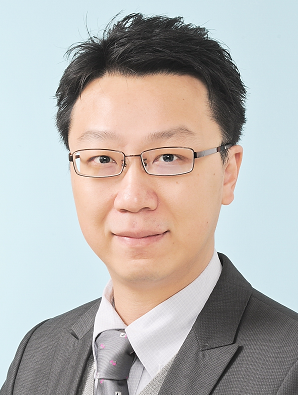Development of Diffusiophoretic Methods for Solid-State Nanopore DNA Sequencing
Wei-Lun Hsu
Department of Mechanical Engineering, The University of Tokyo, Tokyo 113-8656, Japan
Abstract
To combat pandemics, exploring simple and fast molecule sequencing alternatives to labor-intensive and time-consuming polymerase chain reaction methods is of urgent importance for mitigating the burden of the already overloaded healthcare systems. Resistive pulse sensing using artificial solid-state nanopores, possessing the advantages of mechanical strength, flexible geometric capability, and stable chemical properties over biological nanopores, is considered to be a solution for high accuracy and low instability DNA sequencing. However, its development has confronted obstacles of both insufficient spatial and temporal resolutions, limiting the practical sequencing applications. In this regard, nanopores made of two-dimensional (2D) materials, whose thickness coincides with the distance between nucleotides, have been widely adopted to overcome the constraints of the spatial resolution, although the temporal resolution remains low due to the fast translocation speed of DNA molecules. In this study, we propose a novel approach based on diffusiophoretic migration of DNA molecules in a 2D nanopore that effectively reduces the DNA translocation velocity for sequencing applications. It is shown that the mild diffusiophoretic force on the molecules results in smooth DNA translocation, thus revealing the structural information of ssDNA molecules. Computational simulation indicates that a reverse flow outside the nanopore inlet occurs under a salt concentration gradient which facilitates the molecule capture. In the meanwhile, the sudden decrease of the diffusiophoretic force on the molecules in the nanopore remarkably decelerates the molecule translocation speed, providing a new pathway to directly sequence DNA molecules using solid-state nanopores.
Short Bio

Dr. Wei-Lun Hsu is a Lecturer belonging to the Thermal Engineering Laboratory at the Department of Mechanical Engineering, The University of Tokyo. He received his BSc and MSc degrees from National Taiwan University in Chemical Engineering in 2007 and 2009, respectively. In 2015, he obtained his PhD in Chemical and Biomolecular Engineering from the University of Melbourne. He then moved to Japan for his postdoctoral training at the Department of Mechanical Engineering, The University of Tokyo. In 2017, he started working as faculty in the same institute. His principal research interests lie in colloid and interface science, micro/nanofluidics, electrokinetics in ultrathin nanopores for bio-nanosensing and water adsorption in mesoporous materials with application to desiccant-based air-conditioning systems.